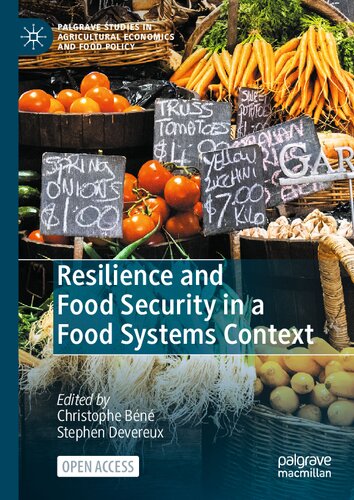

Most ebook files are in PDF format, so you can easily read them using various software such as Foxit Reader or directly on the Google Chrome browser.
Some ebook files are released by publishers in other formats such as .awz, .mobi, .epub, .fb2, etc. You may need to install specific software to read these formats on mobile/PC, such as Calibre.
Please read the tutorial at this link: https://ebookbell.com/faq
We offer FREE conversion to the popular formats you request; however, this may take some time. Therefore, right after payment, please email us, and we will try to provide the service as quickly as possible.
For some exceptional file formats or broken links (if any), please refrain from opening any disputes. Instead, email us first, and we will try to assist within a maximum of 6 hours.
EbookBell Team

4.0
86 reviewsThis open access book compiles a series of chapters written by internationally recognized experts known for their in-depth but critical views on questions of resilience and food security. The book assesses rigorously and critically the contribution of the concept of resilience in advancing our understanding and ability to design and implement development interventions in relation to food security and humanitarian crises. For this, the book departs from the narrow beaten tracks of agriculture and trade, which have influenced the mainstream debate on food security for nearly 60 years, and adopts instead a wider, more holistic perspective, framed around food systems. The foundation for this new approach is the recognition that in the current post-globalization era, the food and nutritional security of the world’s population no longer depends just on the performance of agriculture and policies on trade, but rather on the capacity of the entire (food) system to produce, process, transport and distribute safe, affordable and nutritious food for all, in ways that remain environmentally sustainable. In that context, adopting a food system perspective provides a more appropriate frame as it incites to broaden the conventional thinking and to acknowledge the systemic nature of the different processes and actors involved. This book is written for a large audience, from academics to policymakers, students to practitioners.
This is an open access book.